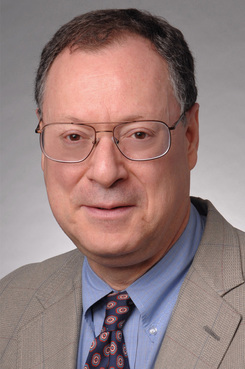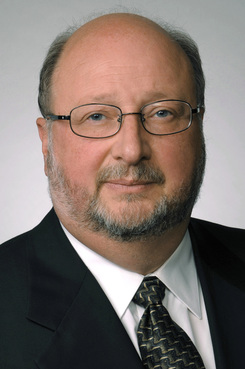Mayer Brown Supreme Court Practice Founder Shot and Killed
Stephen Shapiro, a former U.S. deputy solicitor general and leading Supreme Court advocate, is dead at 72.
August 14, 2018 at 11:04 AM
7 minute read
 (Photo by Diego Radzinschi/ALM)
(Photo by Diego Radzinschi/ALM)
Stephen Shapiro, the founder of Mayer Brown's U.S. Supreme Court practice, was shot and killed at his home in a northern Chicago suburb on Monday night, according to police.
A suspect in what police said was a domestic-related shooting was taken into custody about three hours after the incident. That suspect, who has yet to be identified, fled Shapiro's home in Northfield, Illinois, and barricaded himself in his apartment in nearby Winnetka. His arrest occurred following a brief standoff with a SWAT team, according to local reports, and police said they expected charges to be filed against the suspect.
“We are shocked and saddened to learn of the death of Steve Shapiro, our friend and colleague,” a Mayer Brown spokesman said in a statement from the firm that noted Shapiro's role as “one of the most accomplished appellate lawyers” in the U.S. “Our thoughts are with Steve's family at this difficult time,” Mayer Brown said.
A Cook County Medical Examiner's report released late Tuesday said the cause of death was a homicide due to multiple gunshot wounds.
 Stephen Shapiro
Stephen ShapiroShapiro, 72, once served as U.S. deputy solicitor general during the Reagan administration. He is also credited with founding Mayer Brown's Supreme Court and appellate practice. In front of the country's highest court, Shapiro has argued 30 cases and personally briefed more than 200.
Shapiro joined Mayer Brown in 1972 and made partner in 1978. He then left to serve in the Solicitor General's Office. Shapiro rejoined Mayer Brown in 1983 to start what was possibly the first private practice in Big Law dedicated to arguing before the nation's highest court.
“He was certainly one of the creators of what has now become a much more specialized Supreme Court bar,” said Sidley Austin chairman emeritus Carter Phillips, who overlapped with Shapiro in the Solicitor General's Office and competed with him as a veteran Supreme Court practitioner.
Phillips said Shapiro was respected for his “sheer determination and energy,” producing “awe-inspiring” amounts of quality work product.
“He would make changes on the brief before the last possible second when you'd have to say, 'Steve, this has got to get printed, we can't make any more changes,'” Phillips said. “He was a great lawyer.”
Shapiro's death was greeted with an outpouring of support among appellate lawyers on social media and elsewhere.
“Our appellate community is a small and tight-knit group of highly specialized practitioners,” said Ian Heath Gershengorn, chair of Jenner & Block's appellate and Supreme Court practice. “We mourn Stephen Shapiro's loss. He was a giant in the field and we recognize his many important contributions to the appellate profession and community. Most importantly, our hearts go out to his family and friends, and especially to our colleagues at Mayer Brown.”
Shapiro was joined at Mayer Brown in 1986 by Andrew Frey and Kenneth Geller, who also came out of the Solicitor General's Office. The group went on to form one of the largest and busiest Supreme Court practices in the U.S. Reuters reported in 2014 that Mayer Brown had more petitions granted at the nation's top court than any other major firm between 2004 and 2012.
Shapiro was also known for his work as the author of the treatise “Supreme Court Practice,” which is now in its 10th edition and has been referred to as “the Bible” of Supreme Court practice by justices themselves.
Timothy Bishop, a Mayer Brown partner in the firm's Supreme Court practice who worked two offices down from Shapiro, said that his former colleague had recently handed in his chapters for the 11th version of that treatise.
“If I've ever worked with a lawyer who deserved the description of genius, I think it was Steve,” said Bishop, who worked with Shapiro on a daily basis beginning in 1991.
Shapiro said in a 1997 interview that his preparation for cases involved reading the entire record of a new appeal. He was helped in that endeavor by teaching himself to “speed read,” Bishop said. Within two days of receiving a new matter, Bishop said Shapiro would begin sending out “a barrage” of memos on the relevant cases and most pressing arguments.
“I know when I started I'd always be thinking, 'Well, no one could get into a case that quickly,'” Bishop said. “Then you'd go back at the end of the case and look at the emails and realize he'd captured the winning arguments right from the very start. I still don't understand how anyone could do that. He just had a very accurate and rapid grasp of what would win that appeal.”
Bishop said the death of a mentor whom he'd worked with for three decades would be a “deep personal loss.” But he credited Shapiro for fostering a collaborative environment among the appellate team at Mayer Brown.
 Timothy Bishop
Timothy Bishop“Steve always said he founded the practice, but he wasn't the head of the practice in anything other than title,” Bishop said. “This was a practice of equals.”
Shapiro's self-described strategy for building the 60-plus member appellate unit at Mayer Brown was to replicate the Solicitor General's Office for private clients. That involved hiring the most talented lawyers out of that office in addition to prominent academics and focusing on specialization of substantive areas of law. His views on specialization showed why he encouraged young lawyers to seek out new practice areas.
“I see young lawyers today developing specialties in the law that give them tremendous name recognition, [and] that create tremendous client demand,” Shapiro said in 1997. “Their judgment on very big issues becomes vital to businesses and other clients while these individuals are still very young and it is precisely because they have specialized and studied a narrow but important field of law.”
In one of his more recent Supreme Court appearances, Shapiro argued on behalf of the Mayo Clinic in a case that resulted in a 2012 unanimous ruling against Prometheus Laboratories Inc. The closely watched case involved patents on laboratory tests.
Shapiro's last oral argument occurred less than two weeks ago. On Aug. 2, Shapiro argued on behalf of Whirlpool Corp. before the U.S. Court of Appeals for the Sixth Circuit in a long-running case involving a retiree benefits dispute.
It was a final example of a long-running irony of Shapiro's corporate-focused legal practice. He was the grandson of a labor organizer and politician in Chicago and his late father, Samuel Shapiro, was a union lawyer.
Shapiro is survived by his wife, Joan Gately Shapiro, and daughter, Dorothy Shapiro Lund, a former Sullivan & Cromwell associate who is now an assistant professor at the University of Southern California Gould School of Law. A son, former Chicago comedian Michael Shapiro, died in 2015.
A memorial service for Shapiro will be held at 4 p.m. on Monday, Aug. 20, at Christ Church in Winnetka, Illinois.
This content has been archived. It is available through our partners, LexisNexis® and Bloomberg Law.
To view this content, please continue to their sites.
Not a Lexis Subscriber?
Subscribe Now
Not a Bloomberg Law Subscriber?
Subscribe Now
NOT FOR REPRINT
© 2025 ALM Global, LLC, All Rights Reserved. Request academic re-use from www.copyright.com. All other uses, submit a request to [email protected]. For more information visit Asset & Logo Licensing.
You Might Like
View All
Paul Hastings, Recruiting From Davis Polk, Adds Capital Markets Attorney
3 minute read

Three Akin Sports Lawyers Jump to Employment Firm Littler Mendelson

Brownstein Adds Former Interior Secretary, Offering 'Strategic Counsel' During New Trump Term
2 minute readTrending Stories
- 1Decision of the Day: Judge Dismisses Defamation Suit by New York Philharmonic Oboist Accused of Sexual Misconduct
- 2California Court Denies Apple's Motion to Strike Allegations in Gender Bias Class Action
- 3US DOJ Threatens to Prosecute Local Officials Who Don't Aid Immigration Enforcement
- 4Kirkland Is Entering a New Market. Will Its Rates Get a Warm Welcome?
- 5African Law Firm Investigated Over ‘AI-Generated’ Case References
Who Got The Work
J. Brugh Lower of Gibbons has entered an appearance for industrial equipment supplier Devco Corporation in a pending trademark infringement lawsuit. The suit, accusing the defendant of selling knock-off Graco products, was filed Dec. 18 in New Jersey District Court by Rivkin Radler on behalf of Graco Inc. and Graco Minnesota. The case, assigned to U.S. District Judge Zahid N. Quraishi, is 3:24-cv-11294, Graco Inc. et al v. Devco Corporation.
Who Got The Work
Rebecca Maller-Stein and Kent A. Yalowitz of Arnold & Porter Kaye Scholer have entered their appearances for Hanaco Venture Capital and its executives, Lior Prosor and David Frankel, in a pending securities lawsuit. The action, filed on Dec. 24 in New York Southern District Court by Zell, Aron & Co. on behalf of Goldeneye Advisors, accuses the defendants of negligently and fraudulently managing the plaintiff's $1 million investment. The case, assigned to U.S. District Judge Vernon S. Broderick, is 1:24-cv-09918, Goldeneye Advisors, LLC v. Hanaco Venture Capital, Ltd. et al.
Who Got The Work
Attorneys from A&O Shearman has stepped in as defense counsel for Toronto-Dominion Bank and other defendants in a pending securities class action. The suit, filed Dec. 11 in New York Southern District Court by Bleichmar Fonti & Auld, accuses the defendants of concealing the bank's 'pervasive' deficiencies in regards to its compliance with the Bank Secrecy Act and the quality of its anti-money laundering controls. The case, assigned to U.S. District Judge Arun Subramanian, is 1:24-cv-09445, Gonzalez v. The Toronto-Dominion Bank et al.
Who Got The Work
Crown Castle International, a Pennsylvania company providing shared communications infrastructure, has turned to Luke D. Wolf of Gordon Rees Scully Mansukhani to fend off a pending breach-of-contract lawsuit. The court action, filed Nov. 25 in Michigan Eastern District Court by Hooper Hathaway PC on behalf of The Town Residences LLC, accuses Crown Castle of failing to transfer approximately $30,000 in utility payments from T-Mobile in breach of a roof-top lease and assignment agreement. The case, assigned to U.S. District Judge Susan K. Declercq, is 2:24-cv-13131, The Town Residences LLC v. T-Mobile US, Inc. et al.
Who Got The Work
Wilfred P. Coronato and Daniel M. Schwartz of McCarter & English have stepped in as defense counsel to Electrolux Home Products Inc. in a pending product liability lawsuit. The court action, filed Nov. 26 in New York Eastern District Court by Poulos Lopiccolo PC and Nagel Rice LLP on behalf of David Stern, alleges that the defendant's refrigerators’ drawers and shelving repeatedly break and fall apart within months after purchase. The case, assigned to U.S. District Judge Joan M. Azrack, is 2:24-cv-08204, Stern v. Electrolux Home Products, Inc.
Featured Firms
Law Offices of Gary Martin Hays & Associates, P.C.
(470) 294-1674
Law Offices of Mark E. Salomone
(857) 444-6468
Smith & Hassler
(713) 739-1250









